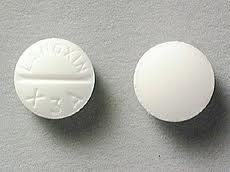Lanoxin Side Effects
 Severe side effects of Lanoxin
Severe side effects of Lanoxin
- Breast Enlargement
- If toxicity levels of the drug are not monitored, Lanoxin may cause serious heart problems especially heart block (disruption of the electrical impulse in the heart).
- Swollen Limbs
- Severe gastrointestinal effects include decreased blood flow to the intestines 0r hemorrhagic necrosis of the intestine.
Common side effects of Lanoxin
- Some patients may experience an allergic reaction while taking Lanoxin. Symptoms include rashes, hives, and swelling.
- Gastrointestinal side effects are fairly common and include vomiting, nausea, abdominal pain, and anorexia.
- Lanoxin may affect the mood and cause confusion, decrease in mental ability, anxiety, and hallucinations.
- Other side effects include blurry vision or yellow vision, headaches, and feeling lightheaded.
Warnings & Recalls for Lanoxin
Why was Lanoxin recalled?
- On March 21st, 2011, Safecor Health, LLC recalled Digoxin 62.5 mcg per half tab blister packs due to failure to market with an approved new drug application (NDA). The recall number is D-647-2011 and the lot number is 332404. The expiration date is 8/12/11. The FDA enforcement report can be found here.
- On November 26th 2008, Advantage Dose, LLC recalled Lanoxin, Digoxin- 0.125 mg or 125 mcg tablets due to failure to conform to cGMP (current good manufacturing practice). The NDC is 00173-0242-55 and the recalled lot number is A38307. The expiration date is 09/16/09. View the FDA enforcement report here.
Warnings
Although Lanoxin is a heart medication, it can be extremely dangerous if the patient has certain heart conditions. The patient should have routine blood tests and be closely observed while taking Lanoxin.
- Lanoxin should be avoided if the patient has ventricular fibrillation, which is an uncontrollable quivering of the muscle fibers in the heart and results in trapped blood in the heart.
- Lanoxin may be deadly for patients with AV Block, which is a block between the atria and ventricles of the heart.
- Lanoxin should not be taken if the patient has sinus node disease.
It is important to
stay hydrated while taking Lanoxin as dehydration may increase toxicity of the medication and may lead to an
overdose. The patient should have their electrolyte levels checked often while taking Lanoxin. Lowered potassium levels increase toxicity of the medication. The patient should have potassium levels regularly tested while taking Lanoxin.
Extreme caution should be observed when discontinuing use of Lanoxin. Sudden withdrawal could severely impair heart function.
Lanoxin Treatment and Use
Lanoxin | Digoxin is primarily used to treat a number of heart conditions, including irregular heartbeat, heart failure, and angina pectoris. In general, Lanoxin is used to regulate the heartbeat. Lanoxin is marketed by GlaxoSmithKline and is extracted from the leaves of the foxglove plant.
What does Lanoxin do?
Lanoxin is a cardiac glycoside that acts specifically on the cardiac muscle and generally on the cardiovascular system. In this way, Lanoxin helps to increase the force of contraction in the heart.
Dosage
Lanoxin is available in tablet, capsule, injectable, and elixir forms and comes in a variety of doses including 62.5 mcg, 125 mcg, 250 mcg, and 500 mcg (per dose). The initial dose is usually 125 to 250 mcg a day. Shortly after, the patient should receive blood work to test for potential toxicity and adjust dosage accordingly.
Other Names for Lanoxin
Brand names
- Lanoxin
- Digitek
- Lanoxicaps (capsule form)
Generic name
Lawsuits & Legal Information for Lanoxin
Author:
Dru Watkins
Posted on Aug 15, 2012
 Severe side effects of Lanoxin
Severe side effects of Lanoxin